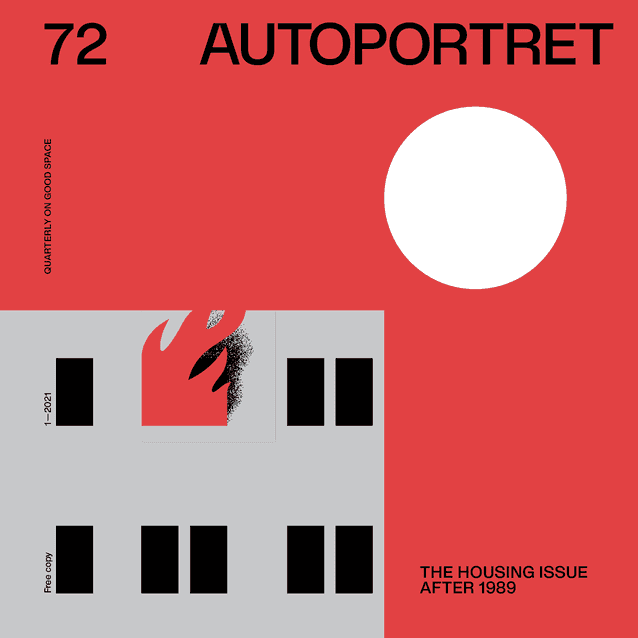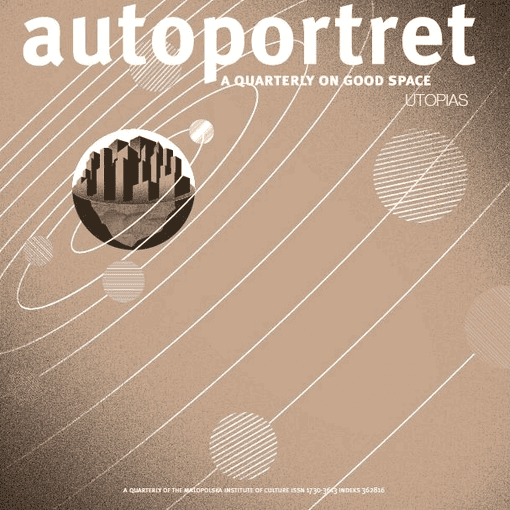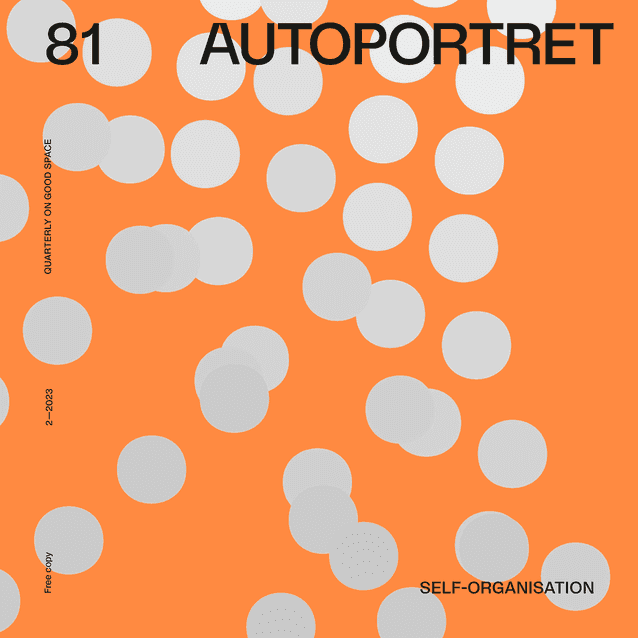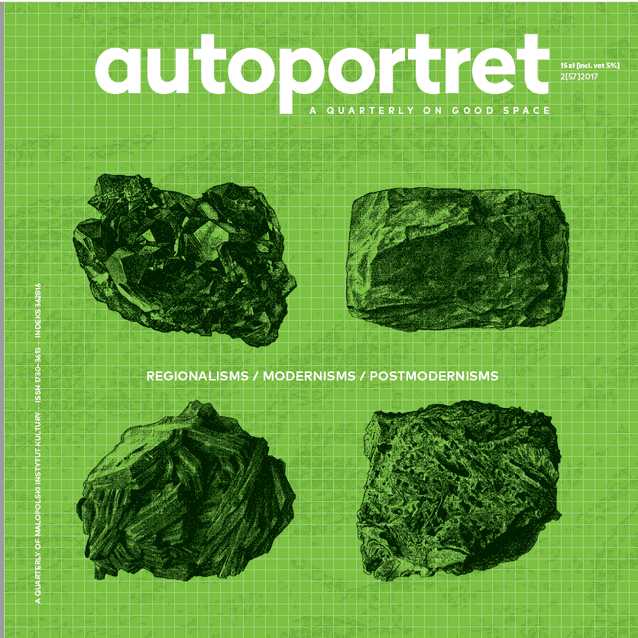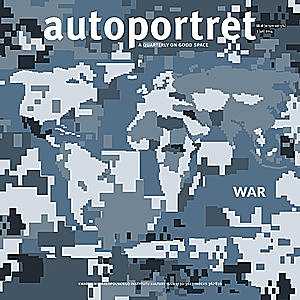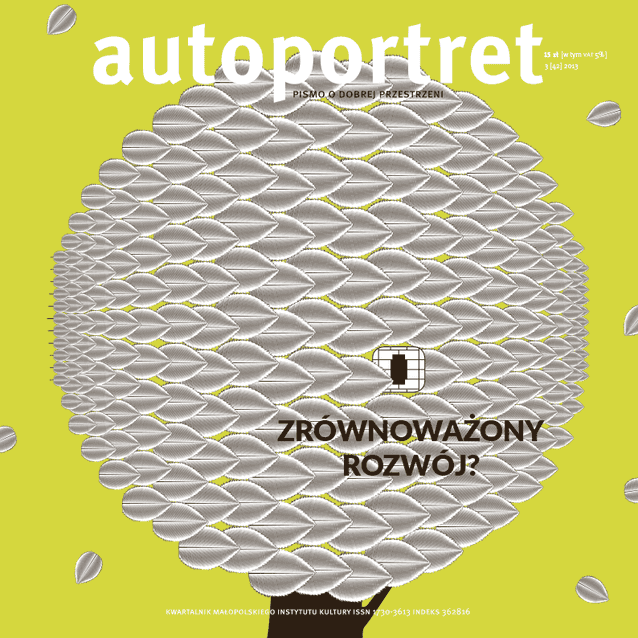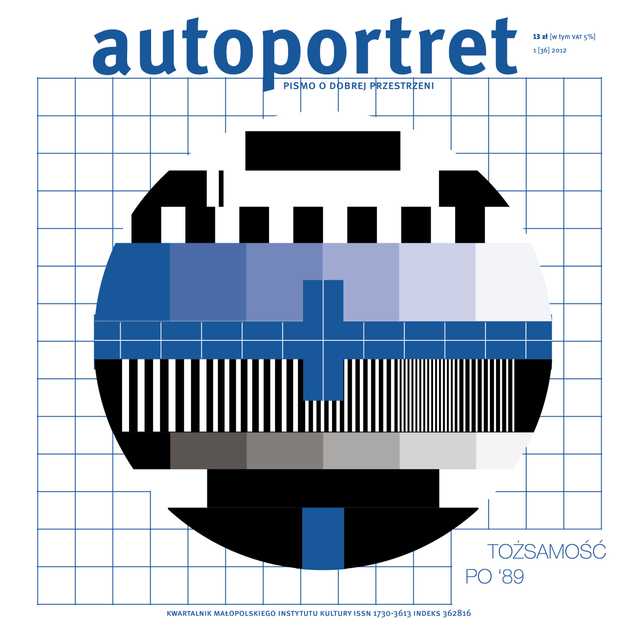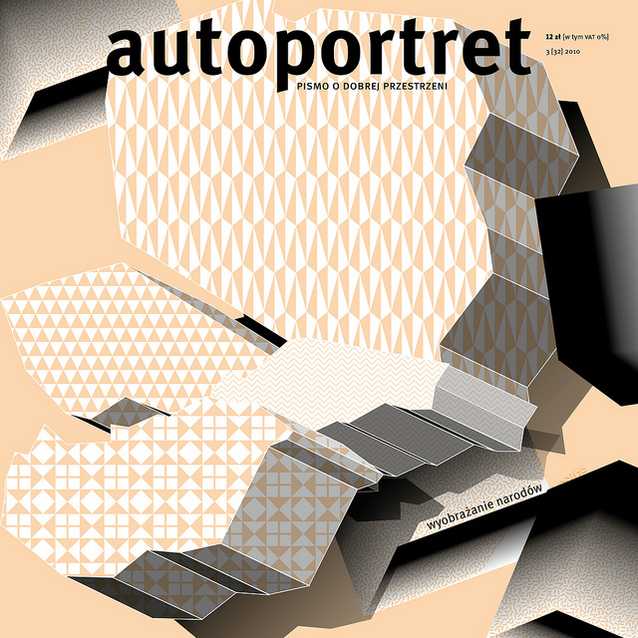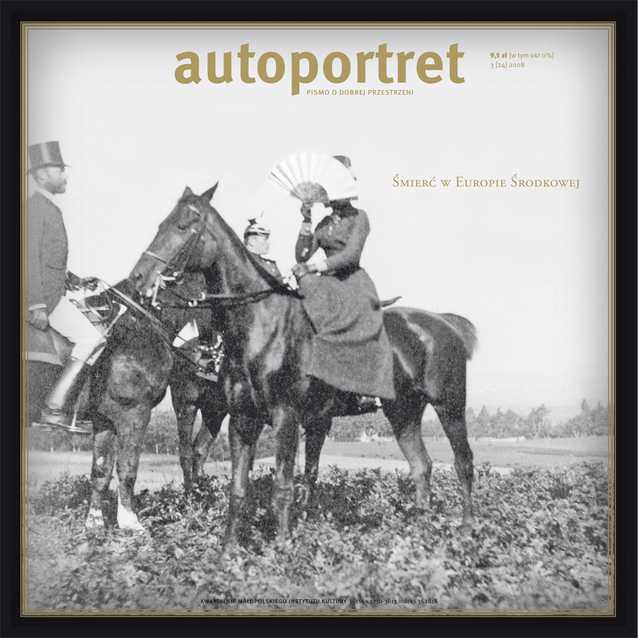At the peak of activity of the alterglobalist movement in 2004, Naomi Klein and Avi Lewis made a documentary entitled The Take1 – a kind of manifesto provoked by neoliberal rhetoric imposing the conclusion that there is no alternative to capitalism. The author of No Logo wanted to polemicise with a famous statement by Margaret Thatcher: “There is no alternative”. In her film, Klein included a scene of a TV debate when the interviewer stubbornly demanded that she presented her programme of changes assuming beforehand that Klein had no such a programme. “Criticism again” – he summed up the helpless interviewee. It must have hurt her to a great extent, as in The Take she declares that “we have to speak about what we are fighting for.”
What is the difficulty? The articulation of an alternative vision often encounters a substantial barrier consisting in the difference between the totality of “the reality that is” and the fragmentary character of “the reality we call for”. Between what just needs to be pointed at and what cannot be exhaustively described. The totality of “the reality that is” is based on our individual biographies, histories and memory, on our knowledge regarding the processes of everyday life, on the intensity of social interactions and their abundance. On the real character of what surrounds us there seems to be a certain “whole”, while the called for reality cannot be based on this concreteness of experience since it usually needs to resort to “imagination”. And “imagination” most often has difficulties keeping up with reality. From this fragmentary character stems the accusation of its utopian character. The final trick of the strategy proclaiming the lack of alternative for the present system once it starts to actually manifest itself (and this can take place – as we shall see – in many different ways) is precisely the accusation of the “utopian character”, that is without a chance for implementation or even pronouncement that these kinds of concepts are doomed to failure or would lead to a worse situation than the initial one. In fact, it is about maintaining the conviction about the discord between “the reality that is” and “the reality we call for” which makes lots of people accept the status quo and abandon “pipe dreams” about a better – or simply different – world.
Utopia
Immanuel Wallerstein admits that the problem with all utopias consists not only in the fact that up to today they “did not exist”, but also in the fact that they are a “breeding ground for illusion”, “disappointments” and what is often even worse, the “justification of many abuses”2. Are the utopias in fact, depending on interpretation, solely naïve, or dangerous imaginations? This is how we interpret them today, attributing to them the liability for the revolutionary havoc and accompanying brutality Europe experienced in the last two hundred years. However, the utopias and designing of social relations were not a modern idea.
Theoreticians of Marxism – even if with a sense of superiority as representatives of a scientific paradigm – willingly analysed utopian concepts, knowing only too well that in the end they were not only isolated mental experiments but an expression of the spirit of the period, an effect of contemporary political disputes, a result of looking for ways to overcome social antagonisms. Friedrich Engels in Socialism: Utopian and Scientific3 derives this type of reflection from the 16th and 17th centuries, while Karl Kautsky in Precursors of Modern Socialism4 refers to an even more distant past, presenting social engineering experiments of primitive Christian communes, heretical sects and various factions of peasant movements. The main problem of utopia was not the will to plan an ideal social system but – as Engels wrote about utopian socialism – the attempts to impose it upon the society from the outside.
Paradoxically neither Marks nor Engels, admitting their historical, utopian-communist origins, did not design future society, or in any case if they did so it was limited and vague. The new order was to come into being by itself as a result of obvious historical development and breakdown of previous social and ownership relations of capitalism. It was not only something called for, but in fact necessary. Nevertheless, in common criticism of Marxist ideology, the attack on its utopian character is among standard arguments. For in a discursive dispute dangerous for the status quo was not the designing itself but predicting, guessing the future, foretelling the “end of the world as we know it.”5 In this context utopia reveals its radically different dimension – as social criticism and not merely justification for imperious and authoritarian aspirations. These two plains must not be confused because then every author of a work proclaiming the shape of the future, including the authors of the concept of the “Heavenly Kingdom”, may be hailed as architects of tyranny and bring Nuremberg charges upon themselves.
Plato’s The Republic6 was one of the first attempts to commit to paper the concept of an ideal social system. The author presents himself as an opponent of Athenian democracy which hid behind its façade the dictatorship of oligarchy and exclusion from public life of women and slaves of both sexes. Plato’s argument is also an ongoing polemic with the sophists who became not a school for discovering the philosophical truth, but, what Plato accuses them of, the costly training for future ruling elites. He also saw Athens as a place where his master, Socrates, died silenced for criticising the authorities and their supporters – the sophists. Moreover, as his model, the philosopher adopted the old system of Sparta, the enemy of Athens.
Also in the works of Thomas More, the author of Utopia and clearly inspired by Plato’s vision, utopian concepts functioned as social criticism. We can find there many radical statements and opinions: “I can have no other notion of all the other governments – we read in a truly golden little book by More – that I see or know than that they are a conspiracy of the rich, who, on pretence of managing the public, only pursue their private ends.”7 And in another place: “As long as there is property, and while money is the standard of all things, I cannot think that a nation can be governed either justly or happily; not justly, because the best things will fall to the share of the worst men; nor happily, because all things will be divided among a few (and even these are not in all respects happy), the rest being left to the absolutely miserable.”8
Nowadays, this critical trend of utopian thought is referred to, among others, by Krzysztof Wodiczko, who wants to treat utopia not as a “no-place” that is something that does not exist but might; but to treat it as “no!place”, that is for utopia to have first and foremost a critical function. Immanuel Wallerstein, on the other hand, creates a term “utopistics” which in his opinion does not mean a perfect and imminent future, but an alternative one, “reliably better and historically possible”. “It is,” according to him, “a sober, rational and realistic estimation of social systems, restrictions imposed by them and areas open to human creativity.”9
Topos
If “utopia” is a call for a place which does not exist, then “topos” means a place which is not only called for, but at the same time exists (or existed). Moreover this is a “common place”, very often an “archetypal” model of the best possible social system. The earliest topos of an ideal social order is Arcadia, insomuch mythical as having its prototype on the Peloponnesian Peninsula, a land populated by shepherds living in perfect harmony with nature. We find the same ideal later, many times, starting from the literature of the Enlightenment and the figure of a “noble savage” of JeanJacques Rousseau, to stories about Indians, including the very popular works of Karl May (the story of Winnetou and the Apache tribe). “Native” motives, especially “Indian” ones won a special place in modern film, also in a definitely less idealised form than in May’s novels (for example in films such as A Man Called Horse10 or Black Robe11). Finally as an example let’s recall the TV production – the series Earth 212, a copy of a western in the science-fiction convention: about the natives (Terrians), first settlers and attempts to create a new social order, as opposed to the destructive civilisations and authoritarianism of “space stations”.
In socialist writings, a similar motive constitutes the “matriarchy”, a prehistoric social system deduced in the mid-19th century by ethnologist Johann Jakob Bachofen, and later promoted, for example, by Friedrich Engels in The Origin of the Family, Private Property and the State13 and Erich Fromm in Love, Sexuality and Matriarchy14. Even though presented in a scientific style, Engels’s story about the Iroquois taken from the works of ethnologists constitutes in fact a similar motive in Marxist literature.
In fact, just as Plato was inspired by the everyday life of Spartans, modern utopian conceptions were strongly influenced by geographical discoveries, especially the colonisation of America, which aroused not only the imagination and a longing for “happy islands” but also hopes for a better life. An example of this is Shakespeare’s The Tempest, with its clearly exposed utopian motive, referring to the story of the Sea Venture ship, which at the end of July 1609 sank off the coast of Bermuda while on its way from England to Virginia. 150 people survived the catastrophe. The survivors, mostly simple commoners, terrified by the islands’ bad fame soon discovered that Bermuda was a land of affluence and started considering the option to stay there forever, entering into conflict with the authorities there and the management of Virginia Company which organised the trip for a specific purpose – the colonisation of the American continent. As Peter Linebaugh and Marcus Rediker emphasise analogically to the passengers of the Sea Venture, other first colonists, motivated by utopian stories of the Eden awaiting them, clashed with the brutal reality where the dreams had to give in to the interests of the primary accumulation of capital. The survivors of Sea Venture after nine months were forced to abandon the islands and settle in Virginia.
Autonomy
Hakim Bey (hailed the greatest author of postmodern anarchist literature) refers to the aforementioned motive. The New World was to be characterised by innocence (hence the name of the state Virginia) and unlimited possibilities, it was a manifestation of the longing for life uncorrupted by the government in the state of nature, whose idealised figure was the “Indian”. Hakim Bey takes freely from the stories about setting of all kinds of new communes in the era of colonisation of both Americas. They were reinforced by fugitives, the poor, pirates, former slaves and the locals; all races and religions crossed, new tribes and sects were created. Referring to these historical and legendary examples, Hakim Bey creates a concept of the Temporary Autonomous Zone (TAZ)15 and looks for such places in the contemporary world, pointing to squatter and hacker communities as an example.
The concept of autonomy differs from utopia in a fundamental way. Firstly, it is not a model of society and accepts numerous defects on principle. As a resident of the Rozbrat squat in Poznań says: “We are a cancer on the body of a sick organism. We are a disease of a disease. Hence we are the recovery.”16 Secondly, TAZ is not supposed to be a stable place and underlines its momentary nature, thus negating the concept of ultimate social order. Finally, it is not a concept, a model brought from the outside. Every “zone” is created and lasts on its own principles. Usually it has an anti-legalist and confrontational character towards the state, living in a parasite union with the society which at the same time it rebels against.
Prefiguration
In The Shock Doctrine17, Naomi Klein describes how neoliberalism uses various types of natural and man-provoked disasters to implement its logic of accumulation of capital. A disaster may however mean also the breakdown of the present system, then – as Immanuel Wallerstein argued – bifurcations and choices appear. Probably they were experienced by the passengers and crew of the Sea Venture, when they crashed onto the rocks. Nobody died. In the end they treated this event not as a tragedy but a chance, a sign – since all of them were believers, probably a sign from God – to start a new life according to their own rules.
As much as the autonomies may occur in a stable situation, and sometimes such a state even encourages their occurrence, the prefigurative model may appear only in a situation when the system’s activity is suspended as it happens mostly during revolutions or violent social changes that may take place after a war, or as a result of natural disasters, economic crashes, etc. Writing about prefiguration, I am referring to the theory of Carl Boggs and his work Marxism, prefigurative communism and problems of workers’ control. Contrary to Hakim Bey, distanced from the idea of a common people’s uprising, Bogg’s theory comes from the faith in the possibilities offered by a revolution: the breakdown of hierarchical structures, the abolition of private property and the constitution of workers’ councils. Simultaneously, prefiguration is not a utopia and it does not look back “to an idyllic past rooted in primitive collectivism.”18
The breakdown of an economic and state system forces people to build alternative forms of managing production, exchange and public matters. These changes, in the case of prefiguration, usually have a much more extensive character, but are often also violent and short-lived. TAZ may in fact survive years, even decades. The author of Poetic terrorism even writes about the possibility of “permanent” Temporary Autonomous Zones. In this perspective prefiguration is only a moment of society rising from the chaos caused by the collapse of previous structures, yet which still has no chance for complete self-fulfilment.
The interregnum presented as a moment of worst crimes and havoc, often – on the contrary – means the end of ruthless terror, or is a short refreshing breath that society can take between the collapse of one authoritarian government and the next one. This, for example, was characteristic for the period between 1945–1947 in Poland, when the crews of many companies took over factories and started, on their own, their reconstruction and production. In many cases workers would create a workers’ council and elect directors. They defined the rules themselves. This practice was eliminated by Stalinist authorities.
Boggs lists many such moments in history: the creation of workers’ and military delegates councils in Russia and Germany in the years 1917–1918, the year 1956 in Hungary and Poland, the student revolt of 1968, and finally, the social unrest and breakdown of the system in Argentina in December 2001, which led not only to takeovers of factories, but also to so-called horizontalism19 (a type of neighbourly gatherings).
Participation
Contrary to the ways of implementing new social relations described above, participation often does not happen from the “grassroots”. The rules of the so-called participation budget at Porto Alegre, the most known example of implementation of such a project, were set by municipal authorities20. Despite the defects of these kinds of solutions, participation may be a source of many social innovations in the form of participatory and direct democracy.
At the source of the participation idea lies the conviction that the creation of new relations does not have to take place in strict opposition to the existing social institutions, neither does it mean a radical parting with them. Socio-political reality is in this case seen more as a continuum of dictatorship and anarchy understood as negation of all forms of authority on its ends. Between these two extremes, there is a whole spectrum of emancipation possibilities in relation to institutions (like self-government) which are seen as “colonised” by the principle of authoritarianism. This is a reference to the idea of the “colonisation of everyday life” by Jürgen Habermas21. The most recent ideas of dialogue and antagonistic democracy assume severe dispute, but moreso in an ideological dimension. The strictly political fight, however, takes place on the same ground for both sides of the conflict. The ultimate goal is, using the language of Habermas, liberation from domination of the purposeoriented and rational systems of the state and capital.
To sum up, we can say that it is not true that the present system of governing and functioning of economy has no alternative. On the contrary – there are many alternatives, they have different origins and they are not at all utopian, even though utopia remains an important source of inspiration for the criticism of the system in the first place. We also have non-utopian alternatives: autonomy, prefiguration, participation, which all go beyond the limits and horizons of the reality only called for. Moreover, alternatives to the system occur and develop parallel to it, they are the “other side of the coin and may come true immediately and not only in the indefinite future. They are an imminent element of all social life.”
Naomi Klein and Avi Lewis, in their film The Take, try to show the alternative, at the same time striving to overcome the fragmentary nature of “the reality we call for” referring to a specific place (Argentina), time (situation after the crash of the system in December 2001) and the phenomenon that even though was not common, could have been so. The taking over of factories by workers (as deserted islands by survivors before) concerned a relatively small part of the Argentinian economy – merely more than dozen thousand of the employed in comparison to over twenty million at working age. Its present role, however, cannot be overestimated. It becomes a part of the story that we will refer to in reply to the demand to accept the immutability of the present situation.
Translated from Polish by Amalia Woźna
